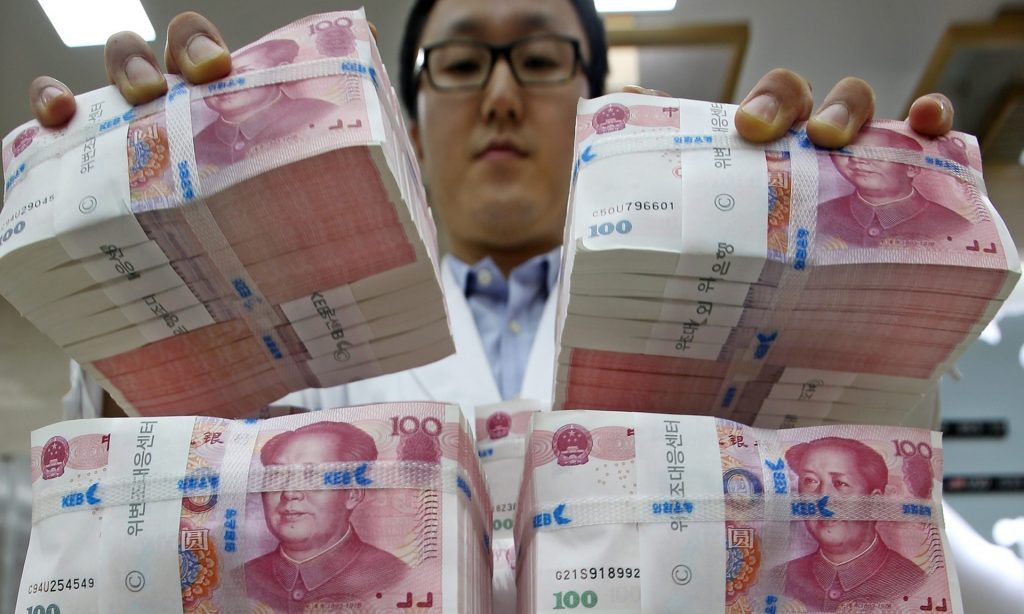China stunned the world’s financial markets on Wednesday by devaluing the yuan for the second consecutive day, triggering fears the world’s second largest economy is in worse shape than investors believed.

The move sent fresh shockwaves through global markets, pushing shares sharply lower and sending commodity prices further into reverse as traders feared the move could ignite a currency war that would destabilise the world economy.
There were widespread losses in Asia, and in Europe stock markets suffered falls of about 1%, with the FTSE 100 tumbling almost 2% at one stage.
The Chinese currency hit a four-year low on Wednesday after the People’s Bank of China set the yuan’s daily midpoint even weaker than in Tuesday’s devaluation.
With the bank having said that Tuesday’s move was a “one-off depreciation”, the rapid drop in the value of China’s currency – about 4% in the past two days – dealt a blow to appetite for risky assets, and markets across the region plunged amid concerns that Beijing has embarked on a damaging currency war.
The unexpected yuan devaluation saw Chinese stocks slump in Hong Kong, with the Hang Seng China Enterprises Index sliding 2.6%, extending its loss this quarter to 15%. The Shanghai Composite Index lost 1% to 3,886.32 and the CSI300 index of the largest listed companies in Shanghai and Shenzhen fell 1.2% to 4,016.13 points.
Shares in airlines were hit particularly hard as investors feared a weaker yuan would contribute to higher fuel bills. Air China lost 4.4% while rivals China Eastern and China Southern dropped close to 6%.
Contributing to the slump were worse than expected economic figures with fixed-asset investment falling short of expectations. The crucial gauge on the country’s growth came in at 11.2% for the first seven months from the same period last year, acording to official data. Economists had forecast a rise of 11.5%.
China’s factory output for July also missed expectations, coming in at 6% year-on-year growth instead of the 6.6% expected. Adding to the slew of bad data was retail sales for July, which amounted to approximately 2.43tn yuan, up 10.5% from June, but also short of market expectations of a 10.6% rise.
The Nikkei stock market index in Japan fell 1.6%; South Korea’s Kospi was down 0.56%.
The Australian dollar, often seen as a proxy for the Chinese economy, fell again to a fresh six-year low of US$72.25c, having been sold off heavily on Tuesday. The US dollar, on the other hand, rose strongly again against all Asian currencies. Key industrial and construction materials nickel, copper and aluminium hit six-year lows.




